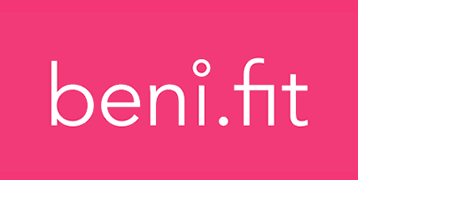According to a recent survey by Robert Half, 77 percent of small and midsize business owners find it challenging to compete against larger firms for millennial workers. Millennials aside, this is a trend that is applicable to every generation of the workforce, and can negatively impact small businesses.“Companies may also want to consider the differences between ‘unique’ and ‘smart’ benefits,” Mike Baize, manager of HR Services Insperity, says. “While cell phone allowances and unlimited paid time off policies may be considered unique perks, organizations shouldn’t discredit the security and stability that smart benefits give their employees.”
Provide your employees with great benefits that are smart in attracting and retaining top talent as well as kind to your bottom line. Here are some ideas:
Flexible Hours
Flexible hours. A benefit that is highly important to the modern-day workforce yet costs employers nothing to implement. Justworks recently conducted a survey of small businesses on employee benefit policies and found that:
- 68% of employees believe flexible hours have a positive impact on their teams
- 42% of employees would take a lower-paying job if it offered a greater degree of workplace flexibility
- 6% of employers believe flexible work hours have a big impact on their ability to hire
As work-life balance becomes more important to employees, flexible hours are the most impactful, and cost-effective, step in this direction. Offering costly benefits may not be the best or smartest investment for a small business, but allowing employees to have flexible hours is a smart benefit, both for your employee happiness and retention, and for your bottom line.
Student Loan Assistance
This benefit is becoming increasingly popular in recent years and the price of higher education skyrockets and employees are taking longer to pay off their student loan debt.
“Knowing that more than 43 million Americans are saddled with student loan debt, it is time business leaders find a way to help their employees climb out of debt,” Tim DeMello Founder and CEO of small business Gradifi, says. “It is important to note that student loan debt is no longer just an issue for recent graduates, since today we are seeing that it can take years, sometimes decades, to pay off the cost of college. Smart businesses are offering student loan repayment as a benefit to attract and retain top talent. This type of benefit can help employees buy new homes or cars sooner, something that is beneficial to the economy as a whole.”
Student loan repayment may seem like a costly benefit to offer, but surprisingly, the employer cost for this benefit is much lower than the employee benefit it provides. For an employee with a base salary of $60,000, the estimated cost to provide $1,200 in loan assistance is $852, according to data gathered by FRACTL. This comes out to 0.01 percent of this employee’s salary. This benefit is fairly “cheap, making it feasible for small businesses to offer. At the same time, it has a high value to employees.
Remote Work
Allowing or promoting employees to work remotely is another benefit that positively impacts both employees and employer.
“Offering fully or partial remote positions can go a long way toward making employees stick around and be motivated. In fact, employee retention and productivity goes up through the roof in companies that offer these perks,” Luis, HR consultant for DistantJob says.
“Besides this, it’s smart to implement these policies because companies save on office space and usage costs when they don’t have employees coming in every day.”
Not only does the ability to work remotely promote the positive work-life balance of employees, it generally promotes a higher level of productivity and creativity.
Ctrip, a Chinese travel website, allowed employees to work from home for 9 months to measure the results of the benefit. They found that work-from-home employees completed 13.5 percent more calls than staff in the office. It also saved $1,900 per employee in those 9 months. On top of that, at-home workers reported a much higher job satisfaction.
Allowing employees to work remotely is a benefit for them. It also has a high likelihood of low-cost or no-cost to employers.
Personalized Health & Wellness
Employees expect, and deserve, an approach to benefits that meets their unique needs. Part of employee wellness is offering great ‘traditional’ benefits like health and dental insurance. The other part of providing for employee wellness is in education and support. This needs to be tailored to the unique needs of each individual.
Recent data from a study that the Benenson Strategy Group conducted found
- Health insurance ranks as millennials’ No.1 workplace benefit, even ahead of retirement contributions and vacation time
- 51% would choose insurance over a 10% pay raise
- Nearly 9 out of 10 millennials carry health insurance, and 85% believe it’s highly important
To provide for your employees, making sure you have a strong health and wellness program is key to keeping employees. Though health insurance is typically one of the most costly employee benefits, offering personalized wellness programs can be fairly inexpensive.
At Beni.fit, we offer a 21-Day Meditation Challenge, a very inexpensive way to help employees implement wellness into their daily life.
Employee health and wellness is one of the smartest benefits you can offer as a small business, as it is one of the top priority benefits for employees and keeps your people healthy and thriving.
Retirement Savings Plans
Saving for retirement is a trop priority for the employees of today. Providing employees a way to save for retirementshows that you’re listening to the values of your employees. It also shows an investment in their future.
“Another smart benefit is an employer contribution to a retirement account, such as a 401(k) plan,” Robin Solomon is a Benefits and Tax Attorney with Ivins, Phillips & Barker, says. “These contributions are not currently taxable to the employee, and the compound interest can accumulate into a tidy pile at retirement. If the employer cannot afford to contribute, it can at least provide a mechanism for employees to contribute their own funds on a pre-tax or Roth basis.”
Investing in a retirement savings plan is one of the smartest benefits you can offer employees. Offering this benefit shows an investment in employees beyond today, and returns the investment by boosted employee retention and loyalty.
Create an environment where your people thrive and your business performance skyrockets. Offer smarter benefits. We’d love to hear what smart benefits you are providing to your workforce. Share your ideas with us, and we’ll include them in our post. When humans thrive, companies prosper. Learn more at Beni.fit.


